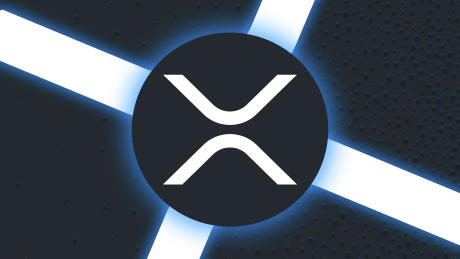The concept of Web3 has been rapidly gaining traction in various sectors, emerging as a potential game-changer in terms of innovation. However, skepticism lingers among industry professionals regarding its true impact. Will Web3 merely repackage existing offerings in a more attractive manner, or does it possess the transformative potential to shape the future?
In order to delve into this topic and offer valuable insights, it is essential to first provide a brief overview of the evolution of the Internet. This background will ensure that we are all aligned in our understanding before exploring the implications of Web3 for Bets.io.
History of the World Wide Web
The concept of creating a decentralized global network for sharing information was conceived more than three decades ago, leading to the development of Web 1.0, which was primarily a one-way communication platform. This era lasted from 1990 to 2004 and was characterized by static websites, dominance of corporate ownership, and limited user interactions.
The evolution to Web 2.0, which began in 2004, aimed to address the shortcomings of the previous phase. This marked the transition to a more interactive and collaborative online environment, with the rise of social media platforms and user-generated content. Web 2.0 also introduced an ad-supported business model for website monetization, although individual content creators faced challenges in owning and profiting from their contributions.
The emergence of Web 3.0, often associated with the development of blockchain technology such as Ethereum, started gaining traction in 2014. This phase seeks to address privacy concerns and data ownership issues, aiming to offer users a more personalized, secure, and transparent online experience. Web 3.0 promises faster and more efficient information processing, resembling human-like capabilities.
Web3 Revolution
Web3 signifies a shift away from the centralized structure of the conventional Web, centering on decentralization. This framework advocates for a model in which users actively participate in the management and evolution of the platform. Putting a spotlight on cryptocurrencies, blockchains, and NFTs, Web3 paints a picture of a fresh Internet landscape where users possess ownership and authority over their content.
Key Aspects of Web3
Web 3.0 introduces several unique features that set it apart from previous iterations of the internet, making it an attractive option for businesses and individuals seeking innovation:
- Enhanced Data Processing: Utilizing artificial intelligence and machine learning, Web 3.0 delivers personalized and reliable information to users.
- Semantic Web Integration: Intelligent systems can interpret emotions and messages to convert them into valuable data for more engaging communication.
- Decentralized Data Storage: Information is stored in multiple locations globally, ensuring widespread accessibility and increased security.
- Improved Connectivity: Users can access a vast array of information through various devices, making data more readily available.
- Trustless Security: Web 3.0 allows for direct interactions without relying on intermediaries, enhancing security measures.
- 3D Graphics Capability: Web 3.0 creates a three-dimensional cyber world that enhances user engagement in games, content, and websites.
When considering Web3 platforms or ecosystems, the scope of available actions varies. While Web3 projects may focus on token ownership and NFT purchases, Web3 ecosystems offer a more extensive range of interconnected features, products, and services. This integration maximizes user benefits, profitability, and overall experience within the platform. Bets.io stands out as a Web 3.0 ecosystem, providing a comprehensive array of advantages for its members.
Why Transition to Web3
Advantages of this innovative network cater to the preferences of contemporary users:
- Ownership is democratized, as control of the platform and its content is shared among developers and token holders.
- Equality is promoted, granting all users unrestricted entry to the network.
- Cryptocurrency native payments enable financial transactions without reliance on traditional banking systems or intermediaries.
- Trust is preserved, as the network functions based on predetermined rules rather than requiring access to user data or involving external entities.
- Permanent ownership via NFTs ensures that users retain full control over their digital assets, enabling them to trade or sell them without loss of value.
- Blockchain data storage secures user information, allowing for seamless transitions to other platforms without the need to rebuild digital identity.
- Collective contribution is facilitated through ownership of DAOs, providing users with a stake in shaping the network’s future.
- Enhanced digital identity security is ensured through Ethereum addresses, offering a unified login experience across various digital platforms.
In summary, Web3 represents a paradigm shift in Internet infrastructure, offering improved security, transparency, and content ownership.
Challenges of Web3 Implementation
The concept of Web3 promises an innovative and all-encompassing browsing experience for users and businesses. Yet, there are notable hurdles preventing widespread adoption:
- Steep Learning Curve: Web3 features complex interfaces, technical jargon, and significant differences from earlier versions, making it challenging for traditional or inexperienced users to navigate. The need to grasp new concepts and processes can deter individuals accustomed to older technologies.
- High Transaction Costs: While Web3 itself is cost-free, transactions such as Minting Ethereum NFTs often incur substantial fees. This financial barrier may limit the accessibility of Web3, particularly in regions with economic constraints, hindering its universal adoption.
Industry Reaction to Web3
In January 2024, the approval of 11 Bitcoin exchange-traded funds by the Securities and Exchange Commission (SEC) sparked mixed reactions within the crypto industry regarding the impact on tradable crypto assets. Concerns arose about BlackRock potentially becoming the largest Bitcoin holder due to the ETF authorization.
Evgeniy Babitsyn, the CMO of Bets.io and a crypto and Web3 expert, shared insights on the advantages and disadvantages of BTC ETF. While it offers retail investors easier access to the crypto market through traditional investment tools, Babitsyn raised concerns that having an ETF contradicts BTC’s original purpose as an alternative to traditional financial systems.
With regards to Web3, data revealed that over 18,000 developers contribute code to open-source Web3 extensions monthly. However, Babitsyn noted during a speech at the SiGMA Awards Eurasia 2024 event that there are currently no official Web3 applications or games developed, and the blockchain technology behind popular casino games remains largely unknown.
Babitsyn emphasized the need for software providers and casino operators to consider the ethical implications of introducing Web3 products, drawing parallels to the challenges faced by users of cutting-edge technologies like Apple Vision Pro. He stressed the importance of maintaining a balanced approach to Web3 releases to ensure a positive gaming experience for users.
In conclusion, Babitsyn highlighted the importance of filling the gaps in understanding and leveraging the full potential of Web3, cautioning against the risk of companies producing superficial products that lack true utility. Despite the challenges, he expressed confidence that 2024 will be a pivotal year for BTC, cryptocurrencies, and Web3, reaffirming Bets.io’s commitment to navigating this evolving landscape.
About Bets.io
Established in 2021, Bets.io has rapidly grown to become an award-winning online gambling venue and a leader in the crypto iGaming market. Collaborating with over 60 software providers, the platform hosts a vast library of 10,000+ games enjoyed by players worldwide. Within just a few years of its inception, Bets.io has been recognized with prestigious awards such as Best Crypto Casino 2024 (SiGMA Eurasia), Best Crypto Casino 2023 (SiGMA Europe), and Rising Star Operator 2022 (SiGMA Europe).
In addition to its acclaimed status, Bets.io offers a sportsbook and affiliate program, while also venturing into the realm of Web3 as an evolving ecosystem. This strategic move will interconnect all Bets.io tokens, NFTs, loot boxes, blockchain games, and more, providing players with the flexibility to buy, trade, sell, or wager on these entities, withdraw their values, or even exchange them for tangible items from partnered sources.
In essence, the Bets.io Web3 ecosystem is a groundbreaking innovation set to revolutionize the rules of iGaming, offering players an unparalleled gambling experience that has never been witnessed before.
Disclaimer: This is a paid release. The statements, views and opinions expressed in this column are solely those of the content provider and do not necessarily represent those of NewsBTC. NewsBTC does not guarantee the accuracy or timeliness of information available in such content. Do your research and invest at your own risk.























